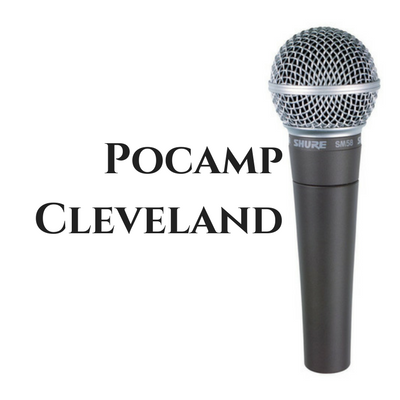
I attended Podcamp Cleveland this weekend. It was a great time and I met some great people. I also had the joy of meeting some people who had no idea what a podcast was, and when I showed them some things on our lunch hour it just blew their minds. It was great fun.
During the day I fielded some questions that I thought I would talk about today.
1. What is a Podcast?
A podcast can be an audio (typically mp3), video (typically m4v), or pdf file delivered via RSS. You can think of it as an Internet Radio/TV show.
2. What is RSS?
It stands for Real Simple Syndication. I always explain it this way. A radio station has a specific frequency. When you put that frequency into a radio, it is translated into something we can enjoy. Your website will produce an RSS feed automatically (if you use Wordress). The frequency for a popular station in Cleveland is 100.7 (which means nothing to me). When you tune your radio to 100.7 you hear the music. The “Frequency” (RSS feed) of this website is http://feeds.feedburner.com/sop (which does nothing for us) until you put it into an RSS reader. Many people use iTunes. Some people use Google Reader. When you put http://feeds.feedburner.com/sop into those products it “translates” the information into something we can enjoy. If you want to see this in action, go to www.learntosubscribe.com
3. What is a Blog? Is it the same as a Website?
Back in the day, you would design your website in software on your computer. You used software like Dreamweaver, Front Page, and others to create your website on your computer and then upload it to your computer. The site would not change. The tech term for this is “static.” People would come and read it. Blogging software is almost always hosted on the Internet. The most popular blogging software is WordPress. When blogging first came out it was seen as a way to create an online diary. You would create posts (blurbs) and as a new post would come out, the old posts would be organized into an archive. A blog also had tools to allow people who read your blog to leave comments. So a website was “static” and didn't change much. A blog was frequently updated, and was interactive. Over time, blogging became more robust, and flexible. It also allowed people to update their blog from any computer that had access to the Internet. With the blogging software being powerful and easy, man people started using WordPress to create websites. This site has a “Static” front page where I talk about signing up for our tutorials. It also has a blog section that has all of the show notes from the podcast. In general, the terms Blog and Website are interchangeable.
4. What would be the first things I would recommend to a want to be podcaster.
A. Go to iTunes and click on the store and do a search for “your topic” podcast. Subscribe and listen to a few making notes about what you like and what you dislike.
B. Use whatever you have laying around to record a podcast. This helps you see how much effort it takes to make a podcast.
C. Have someone who is not your Mom listen to it.
D. If you're still interested, purchase some podcast equipment, and well, join the School of Podcasting
5. What equipment do I use?
The easiest way to see my thoughts on equipment is to go to www.schoolofpodcasting.com/equipment but for now to answer your question I use:
A. Sure SM58 Microphone ($99)
B. Behringer Eurorack UB802 ($64)
C. Zoom H4 Portable Recorder $300
D. Occasionally I plug in a DBX286A Mic Preamp Processor
E. I use Adobe Audition 3, but when I first started I used Sony Acid (free) or Sony Acid Music Studio 8.0
($46)
I also used Acoustica Mixcraft (till they pimped it out too much).
Check out the Northeast Ohio Podcasters Group
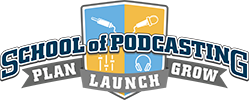
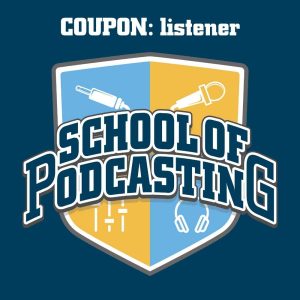
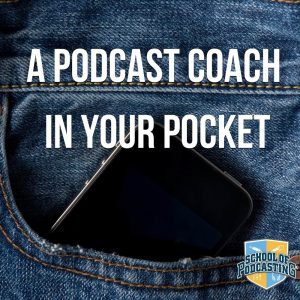
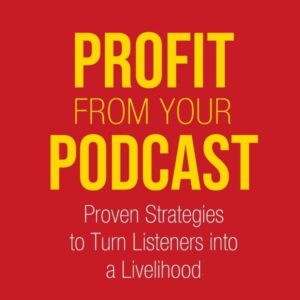
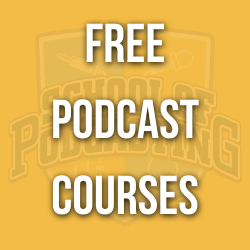
One good place to find podcast groups is meetup.com
You mentioned a lot of other podcasts about podcasting at the end of the podcast, and I thought you said you would include links to these podcasts here in the show notes.
Thanks for the great podcast!
Steve,
Sorry about that. I moved the list to my blog at http://davidjackson.org/2011/05/podcasts-about-podcasting/
David,
What do you do, if you really are serious about doing a podcast, but you know your topic is heavily covered in the world of podcasting?
Should one then reconsider their topic because there is so much competition, or do you decide to be determined and figure out how to stand out from the rest?
I am sure many people face this issue unless they pick a topic that is dear to them, but has a limited audience( and yes, that too is another issue.)
If the competition is that stiff for the topic you wish to cover- what do you sincerely suggest your listeners do? Go for it? Or rethink the topic?
Thanks so much for your feedback on this dilemma; from myself and all other podcast lovers who listen to you online! 🙂
Jaye
Jaye,
Depends on what you will difine your scucess at. If you love to fish, and talk fishing and bait, and lures, then start a podcast and talk about it. If you’re not going to be happy unless you get 1000 downloads an episode, then be prepared to do some promotion. Also keep in mind that many of the people in your genre will quit when they figure out how much time it takes to podcast and you will be there standing, why? Becuase you love fishing so much that you would talk about it if nobody was listening. Lastly, try it. If you don’t like it, pick another topic.